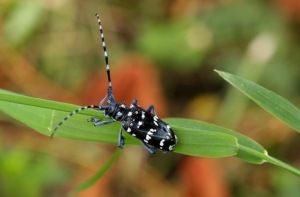News
Danes now required to report ‘odd things in nature’
This article is more than 8 years old.
Authorities should be notified if nature lovers spot unusual and invasive species in the Danish countryside

Researchers have created a new insecticide that causes beetles to urinate themselves to death (photo: (Iwatebud)
Danish residents traipsing through the country’s abundant nature are now required to report if they spot invasive creepy insects like the citrus long-horned beetle or melon thrip, or plant maladies like potato wart.
The requirement for Danes to report harmful plants and animals on the EU’s quarantine list to environmental watchdog NaturErhvervsstyrelsen took effect on January 1.
“People in Denmark are often out in nature,” Kristine Riskær from NaturErhvervsstyrelsen told DR Nyheder. “They can really be a big help.”
Keep your eyes on the flies
Riskær said that ignoring invasive and dangerous species could have serious consequences.
“You could compare it with mad cow disease or swine fever,” she said. “If the citrus long-horned beetle were allowed to establish itself, it could damage timber exports, because the beetle destroys trees from the inside out. A small storm could bring down many trees.”
Riskær said she realised that many harmful organisms on the EU’s list of 250 serious pests were hard to recognise, but she was “still happy to have more eyes and ears” out there.
READ MORE: EU condemns a dozen invasive species in Denmark
A list of harmful animals and plants can be found at naturerhverv.dk.










































